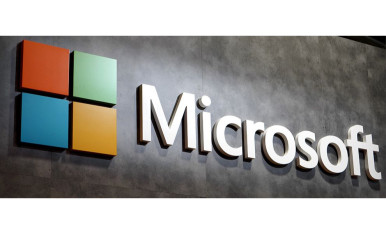Microsoft 365 Copilot audit logging vulnerability

Overview:
A vulnerability in Microsoft 365 Copilot (M365 Copilot) allowed users to access and summarize sensitive files without generating corresponding audit log entries—creating a significant blind spot for security monitoring. Microsoft quietly patched the issue on August 17, 2025, but classified it as “Important” and did not issue a CVE or formally notify customers.
Vulnerability Details:
- The vulnerability involves prompt manipulation in Microsoft Copilot.
- Specifically, instructing Copilot to exclude reference links in file summaries prevented the associated user actions from being logged.
- As a result, these actions bypassed audit logging mechanisms entirely, leaving no trace in Unified Audit Logs (UAL) or Microsoft Purview.
- This behavior represents a serious logging oversight in environments that depend on Copilot-generated audit trails.
Note: As of this advisory, Microsoft has not assigned a CVE ID to this issue.
How It Affects:
- Copilot prompts that exclude reference links bypass audit logging, preventing security and IT teams from tracking which files were accessed and by whom.
- This creates blind spots in visibility and monitoring, making it difficult to detect or investigate user activity involving sensitive data.
- Insider threats or malicious users could use this technique to summarize or extract sensitive information without leaving any trace in the logs.
- Data Loss Prevention (DLP) systems relying on audit logs may fail to detect such unauthorized access or misuse.
- The absence of audit records violates key compliance requirements (e.g., GDPR, HIPAA, SOX), increasing the risk of non-compliance and potential legal exposure.
Who It Affects:
- All Microsoft 365 Copilot users across tenants prior to August 18, 2025.
- Particularly impacts organizations in:
- Financial services
- Healthcare
- Government and defense
- Other regulated sectors that require strict audit and logging standards.
Impact:
- Security: Increased risk of data exfiltration or misuse going unnoticed.
- Compliance: Potential violation of audit and retention mandates (e.g., HIPAA, SOX, GDPR).
- Operational: Decreased trust in audit logs and limitations in threat detection and response.
Targeted Products:
The vulnerability affects Microsoft 365 Copilot integrations across:
- Web, desktop, and mobile platforms
- Microsoft Office Suite, including:
- Word
- Excel
- PowerPoint
- Teams
- Other apps with Copilot integration
Recommendations:
1. Confirm Patch Status
- Ensure the August 17, 2025 silent patch has been applied across all tenant environments.
2.Restrict Risky Prompt Usage
- Temporarily limit prompts that bypass logging (e.g., those removing reference links). Use Microsoft 365 controls or policies to enforce safe Copilot usage, especially around sensitive data.
3.Apply DLP & Sensitivity Controls
- Review and apply Data Loss Prevention (DLP) and Sensitivity Labels to restrict Copilot’s access to confidential or regulated content.
4. Train Users
- Educate staff on responsible Copilot usage and discourage attempts to manipulate prompts.
- Reinforce secure prompt engineering practices, especially for privileged users.
5. Engage Microsoft Support
- Inquire about any retrospective fixes or additional monitoring capabilities.
References:
https://cybersecuritynews.com/copilot-vulnerability-breaks-audit-logs/
https://gbhackers.com/copilot-vulnerability-lets-attackers-bypass-audit-logs/